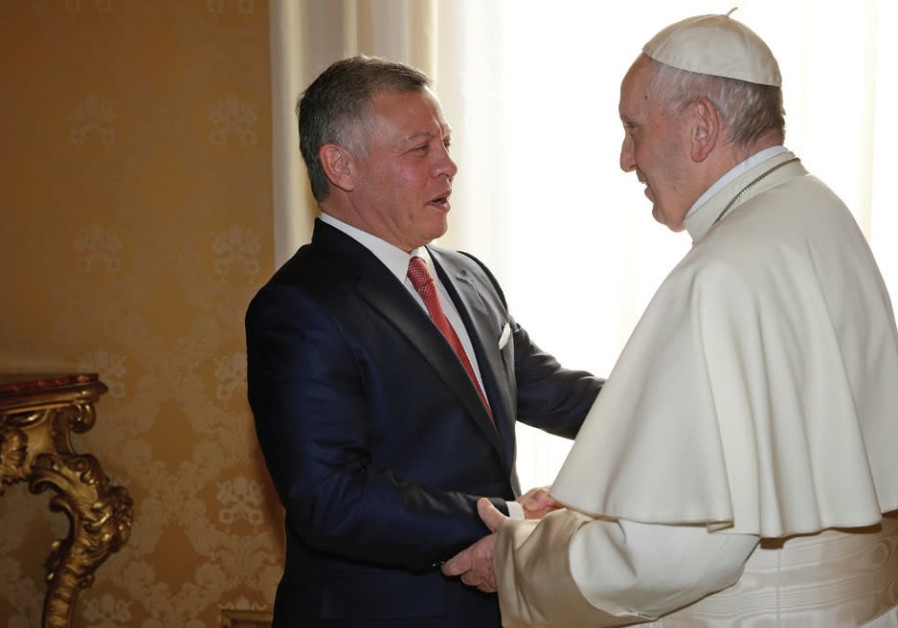The United States, Canada and Israel were among the seven that opposed the text; four states abstained.

The General Assembly voted 176-7 on Tuesday to affirm the Palestinian right to self-determination, one day after Palestinian Authority President Mahmoud Abbas pledged to renew his quest for state membership in the international body.
The vote is nonbinding and has no impact beyond underscoring international support for Palestinian statehood among most of the UN’s 193 members.
The United States, Canada and Israel were among the seven that opposed the text; four states abstained.
While the General Assembly approves a similar text each year, PLO Ambassador to the UN Riyad Mansour said this year’s vote had to be seen within the context of international opposition to US President Donald Trump’s declaration that Jerusalem is the capital of Israel.
On Monday, the US vetoed a UN Security Council resolution against the declaration that had the support of the other 14 nations on the 15-member body.
“The world rejects the new US position on Jerusalem, which increases its isolation, because it decided to stand by the occupying state, Israel, in violation of relevant Security Council resolutions,” Mansour said, according to Wafa, the Palestinian news agency.
It is one of a number of moves the Palestinians are taking at the UN this week to underscore their claim that Israel and the US are isolated on the world stage when it comes to the Israeli- Palestinian conflict.
On Wednesday, the General Assembly will vote on a resolution stipulating the right of the Palestinian people to their natural resources in “occupied territory,” Mansour added. This includes the West Bank and east Jerusalem.
But the PLO needs Security Council approval to become a UN member state, which means that the US can block its momentum.
The PLO is seeking a way to circumvent the US; to date there are few UN organs that provide an alternative to a Security Council vote.
The primary organ for neutralizing the Security Council is the General Assembly’s Uniting for Peace Resolution 377A, approved in 1950 to neutralize the Soviet Union’s power at the Security Council, which at the time was blocking action on Korea.
Since then, the General Assembly has held 10 emergency session under Resolution 377A, half of which have been about Israel.
The last one was opened in 1997 over Israeli construction in Jerusalem’s Har Homa neighborhood, located over the Green Line. Eighteen General Assembly meetings have been held under that session’s title.
The last such emergency session was in 2009, regarding the IDF’s Operation Cast Lead against Hamas in the Gaza Strip.
In 2012, the General assembly voted to recognize “Palestine” as an observer state, a move considered to be a form of de facto statehood recognition, but which does not grant the Palestinians full statehood rights.
Resolution 377A has not yet been used for statehood affirmation.
The Arab states, however, made use of it to reconvene the 10th emergency session on Thursday, so that the General Assembly can approve the vetoed Security Council text on Jerusalem. Turkey, Yemen and the Organization of Islamic Cooperation issued a request for such a session.
A resolution passed under 377A is not as binding as a Security Council resolution, but is stronger than a regulation General Assembly text.
Alan Baker, former legal adviser to the Foreign Ministry in Jerusalem and a senior fellow at the Jerusalem Center for Public Affairs, said that such a move was a “big bluff.”
Such a session can adopt resolutions, and “they carry a bigger punch,” but they are not binding, he said.
In general, the UN “cannot determine that a declaration by a US president can be legal or illegal, because the declaration itself does not violate any international law,” Baker said.
Separately, Jordan’s King Abdullah is in Europe to bolster opposition to Trump’s Jerusalem declaration. Abdullah and Pope Francis spoke privately for about 20 minutes at the start of the King’s visit to the Vatican and France.
A Vatican statement said they discussed “the promotion of peace and stability in the Mideast, with particular reference to the question of Jerusalem and the role of the Hashemite Sovereign as Custodian of the Holy Places.”
The statement said both sides wanted to encourage negotiations.
He also met in Paris with French President Emmanuel Macron to discuss Jerusalem and the peace process. Reuters contributed to this report.
As reported by The Jerusalem Post
